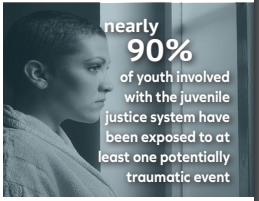Pre-arrest diversion program, Madison Addiction Recovery Initiative (MARI) is to reduce crime and improve health (i.e., reduce the overdose deaths) who committed a minor, non-violent, drug use-related offense by offering them a referral to treatment in lieu of arrest and prosecution of criminal charges.
The 4 Pillars of Collaborative Court and Community Caseflow Management
1. Strengthen community responses and minimize criminal justice system involvement;
2. Promote early intervention and effective management of court cases;
3. Institutionalize alternative pathways to treatment and recovery and improve outcomes; and
4. Manage post-adjudication events and transitions effectively.
Pima County Attorney Laura Conover, her leadership team, and PCAO staff are building community safety for all through accountability, healing, and restorative justice practices.
Byrne Justice Assistance Grants (JAG)
Purpose: Supports a broad range of activities by state, local, and tribal governments to
prevent and control crime based on local needs.
Description: The JAG formula program provides both state and local governments with
formula grant awards based on population and violent crime statistics. These formula awards
support a broad range of criminal justice and public safety activities, including: (1) law
enforcement programs; (2) prosecution and court programs; (3) prevention and education
programs; (4) community corrections programs; (5) drug treatment and enforcement
programs; (6) planning, evaluation, and technology improvement programs; and (7) crime
victim and witness programs (other than compensation).
Comprehensive Opioid, Stimulant, and Substance Abuse Program (COSSAP)
Purpose: Supports state, local, and tribal governments to develop, implement, or expand
comprehensive efforts to identify, respond to, treat, and support those impacted by illicit
opioids, stimulants, and other drugs of misuse.
Description: Provides funding to support four key areas that include: promoting public safety
and supporting access to recovery services in the criminal justice system; strengthening the
collection and sharing of data across systems to understand and address the impact of illicit
substance use and misuse; align and maximize resources across systems and leverage diverse
program funding; and prevent substance use and misuse.
Drug Court Program
Purpose: Assists state, local, and tribal jurisdictions in developing and implementing drug
courts that effectively integrate evidence-based substance misuse disorder treatment,
mandatory random drug testing, equitable sanctions and incentives, and transitional services
in judicially supervised court settings.
Description: Provides grants and training and technical assistance to support the
development, operation, and enhancement of adult, juvenile and family drug courts at the
state, local, and tribal levels. Drug court programs have proven to be a solid investment of
federal dollars with a 25-year track record of success in diverting addicted individuals from
incarceration and reducing their risk of recidivism, thus improving public safety and health.
STOP School Violence Act Program
Purpose: Prevent or mitigate incidents of school violence by promoting coordinated,
evidence-based approaches to school safety that encourage collaboration between schools
and local law enforcement.
Description: Provides funding to support training to prevent student violence against others
and self; the development and operation of anonymous reporting systems for threats of
school violence; and the development and deployment of school threat assessment and
intervention teams that include coordination with law enforcement agencies and school
personnel as well as specialized training for school officials in responding to mental health
crises.
State and Local Law Enforcement Assistance (SLLEA)
Adam Walsh Act
Body Worn Camera Partnership Program
Bulletproof Vests Partnership
NIST Transfer
Byrne Criminal Justice Innovation Program (Innovations in
Community-Based Crime Reduction Program)
Byrne Justice Assistance Grants (JAG)
Ashanti Alert
Capital Litigation Improvement Grant Program
Child Advocacy Training in Post-Secondary Education
Child-Friendly Family Visitation Centers in Correctional
Facilities
Community-Based Violence Prevention Initiative
Family-Based Alternative Sentencing Programs
John R. Justice Loan Repayment Grant Program
Managed Access Systems/Combating Contraband Cell Phone
National Center for Restorative Justice
National Missing and Unidentified Persons System (NamUs)
Training to Improve Police-Based Responses to the People
with Mental Illness
Training on Racial Profiling and De-escalation, and Duty to
Intervene Program
Rural Law Enforcement Violent Crime Initiative
Strategies for Policing Innovation (Smart Policing)
Project Safe Neighborhoods (PSN)
Community Violence Intervention
Comprehensive Addiction and Recovery Act related activities
Comprehensive Opioid, Stimulant, and Substance Abuse
Program (COSSAP)
Drug Court Program
Justice and Mental Health Collaboration Program
Prescription Drug Monitoring Program
Residential Substance Abuse Treatment
Veterans Treatment Courts
Court Appointed Special Advocate Program (CASA)
DNA Programs
DNA Related and Forensic Programs and Activities
DNA Analysis and Capacity Program
Other Federal, State, and Local Forensic Activities
Post-Conviction DNA Testing
Sexual Assault Nurse Examiners
Sexual Assault Kit Initiative (SAKI)
Economic, High-tech, White Collar and Internet Crime
Prevention
Intellectual Property Enforcement Program
Accelerating Justice System Reform
Second Chance Act Program
Children of Incarcerated Parents Demonstration Grants
STOP School Violence Act Grant Programs
Improving the Investigation and Prosecution of Child Abuse Cases – Children’s Justice and Assistance Act Programs in Indian Country
. The program provides support to tribal communities to improve the investigation, prosecution, and overall handling of child abuse in a manner that increases support for and lessens trauma to the victim.
The program funds activities such as:
o Revising tribal codes to address child sexual abuse;
o Providing child advocacy services for children involved in court proceedings;
o Developing protocols and procedures for reporting, investigating, and prosecuting
child abuse cases;
o Enhancing case management and treatment services;
o Offering specialized training for prosecutors, judges, investigators, victim advocates,
multidisciplinary or child protection teams, and other professionals who handle
severe child physical and sexual abuse cases; and
o Developing procedures for establishing and managing child-centered interview
rooms.
